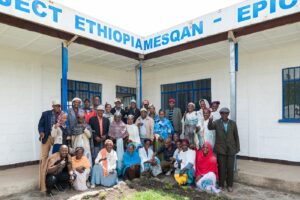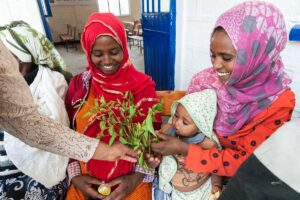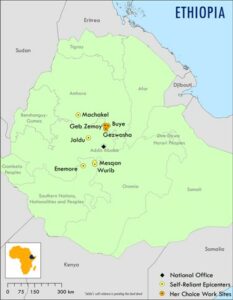Ethiopia
Ethiopia is the only country in Africa that was never colonized and one of the oldest countries in the world, yet it still struggles with political unrest, high poverty rates and low education rates.
Ethiopia has experienced decades of political turbulence, and has come under further pressure from the influx of refugees from Southern Sudan. About one third of the population lives below the poverty line. As the negative effects of climate change continue to threaten agriculture, the population living below the poverty line could increase. About half of all children between the ages of five and 14 work.
In 2020, political and ethnic tensions led to fierce, but until then locally limited, conflicts in the Tigray region. Prior to this, under Prime Minister and Nobel Peace Prize winner Abyi Ahmed, a far-reaching political transformation of the country had begun.
Fortunately, the current violent conflicts are limited to the Tigray region in the north of the country. It is to be feared, however, that the political tensions will lead to indirect negative effects even in those regions of the country where our epicenters are located. It is therefore more important than ever to support the local people.
Recent successes
THP Switzerland has recently achieved some successes in Ethiopia.
Thus, the Jaldu Epicenter was able to achieve independence at the end of 2018 and this was officially declared in 2019. Thus the Epicenter now fulfills all requirements to meet the basic needs of its community members independently (and without support from the Hunger Project). By the end of 2018, 19,055 people from 33 villages had access to the Epicenter.
The achieved score in the independence test was 81.29 of the required 80 points:
- 100% of small farmers use improved farm management practices
- 92% of community members have access to financial services
- 77% of children attend school regularly
- 67% of community members use at least one simple source of drinking water
- 90% of households have at least one household member who can read and write
- 89% of workers consult a doctor in case of illness
- Score regarding the indicator for the empowerment of women: 57.68 of 100 possible points
- 87% of women receive antenatal care
- 67% of births are attended by licensed nursing staff
- 42% of women own a small business
Prior to this, the Meskan Epicenter had already declared its independence at the end of 2017. The opening ceremony took place in early 2018.

Mission Report

THP sites in Ethiopia

Ethiopia
Ethiopia is the only country in Africa that was never colonized and one of the oldest countries in the world, yet it still struggles with political unrest, high poverty rates and low education rates.
Ethiopia has experienced decades of political turbulence, and has come under further pressure from the influx of refugees from Southern Sudan. About one third of the population lives below the poverty line. As the negative effects of climate change continue to threaten agriculture, the population living below the poverty line could increase. About half of all children between the ages of five and 14 work.
In 2020, political and ethnic tensions led to fierce, but until then locally limited, conflicts in the Tigray region. Prior to this, under Prime Minister and Nobel Peace Prize winner Abyi Ahmed, a far-reaching political transformation of the country had begun.
Fortunately, the current violent conflicts are limited to the Tigray region in the north of the country. It is to be feared, however, that the political tensions will lead to indirect negative effects even in those regions of the country where our epicenters are located. It is therefore more important than ever to support the local people.
Recent successes
THP Switzerland has recently achieved some successes in Ethiopia.
Thus, the Jaldu Epicenter was able to achieve independence at the end of 2018 and this was officially declared in 2019. Thus the Epicenter now fulfills all requirements to meet the basic needs of its community members independently (and without support from the Hunger Project). By the end of 2018, 19,055 people from 33 villages had access to the Epicenter.
The achieved score in the independence test was 81.29 of the required 80 points:
- 100% of small farmers use improved farm management practices
- 92% of community members have access to financial services
- 77% of children attend school regularly
- 67% of community members use at least one simple source of drinking water
- 90% of households have at least one household member who can read and write
- 89% of workers consult a doctor in case of illness
- Score regarding the indicator for the empowerment of women: 57.68 of 100 possible points
- 87% of women receive antenatal care
- 67% of births are attended by licensed nursing staff
- 42% of women own a small business
Prior to this, the Meskan Epicenter had already declared its independence at the end of 2017. The opening ceremony took place in early 2018.

Mission Report

THP sites in Ethiopia


